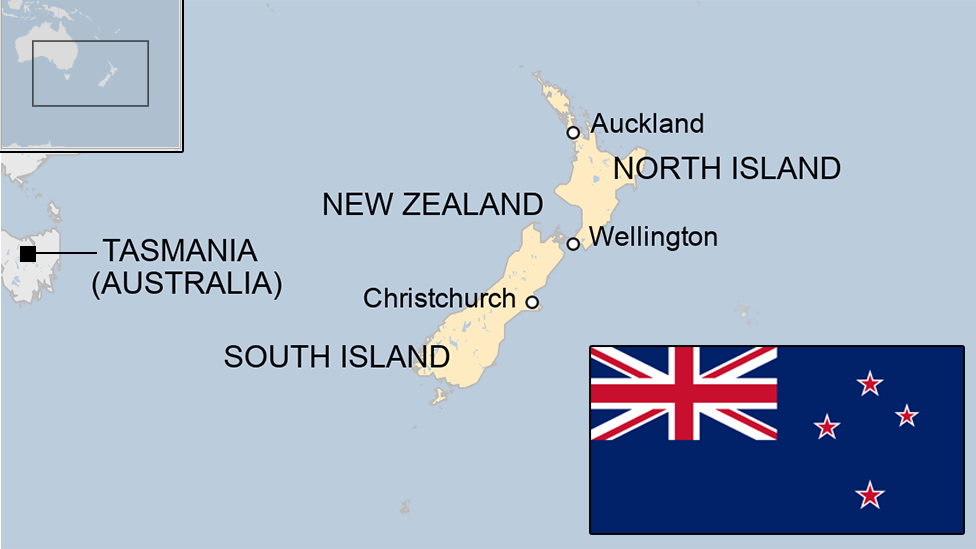New Zealand beach bought by crowdfunding is given to public
- Published
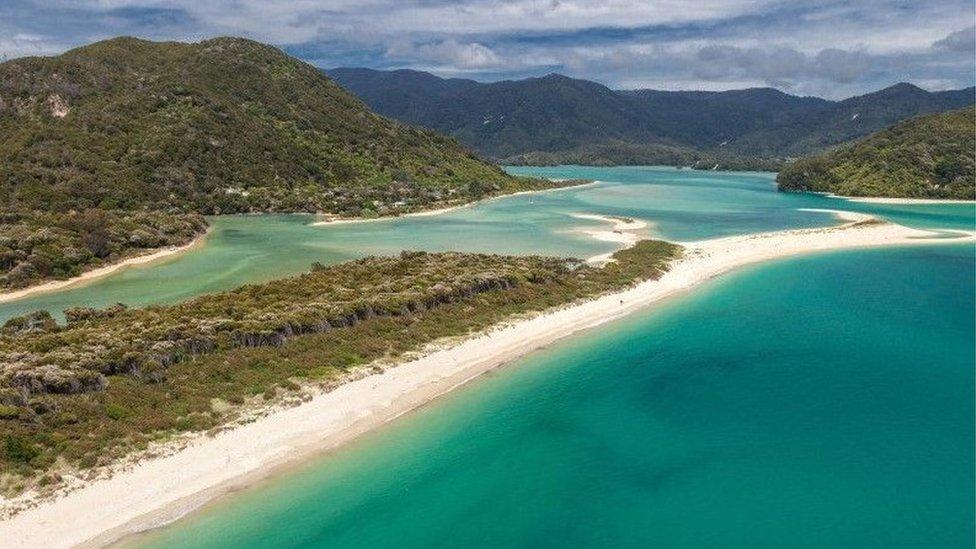
The beach can be accessed by a nearby airstrip
A pristine beach in New Zealand bought through a crowdfunding campaign has been handed to its new owners - the public.
Nearly 40,000 people donated almost NZ$2.3m (£1.3m, $1.7m) to buy the Awaroa beach in the Abel Tasman National Park, on the South Island.
Campaigners snubbed a businessman who offered them money in exchange for private access to part of the beach.
The seven-hectare site will now be run by a national park.
The previous owner, businessman Michael Spackman, agreed to sell the beach after the online crowdfunding campaign reached its target in a little more than three weeks.
The purchase ensured the beach will remain out of private hands.
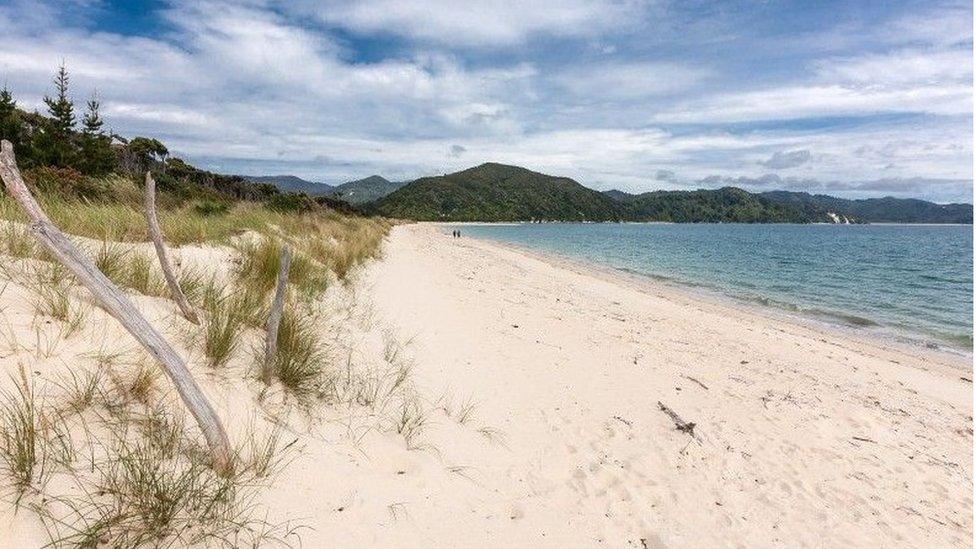
Maori groups had argued the land should be given to them
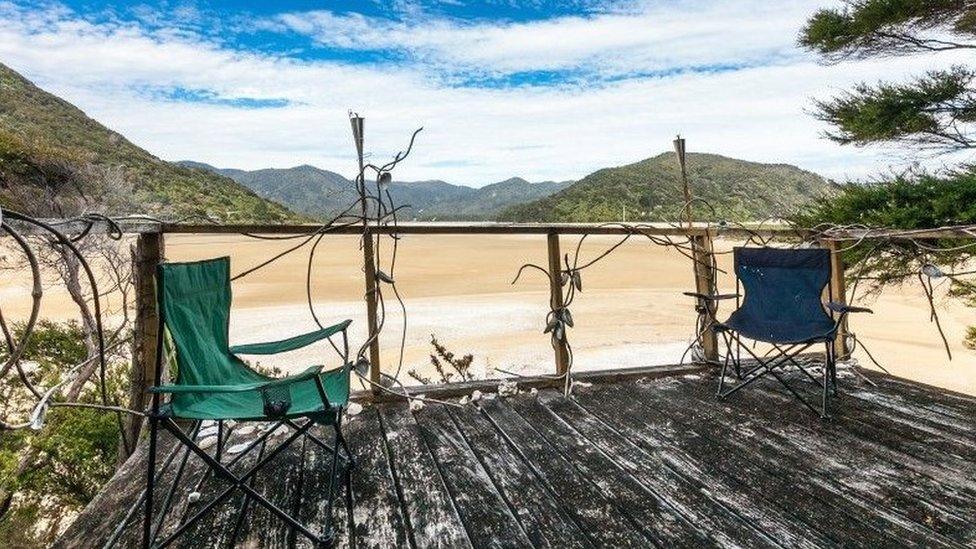
"It's a great day," campaigner Duane Major told the BBC. "Sometimes you can feel powerless, so for us, it's been a marvellous experience of empowerment.
"There's been a real feeling of coming together. People in other countries have recognised what it's been all about too.
"We're in an age with various forms of technology that can pull people apart. But in this case it brought people together."
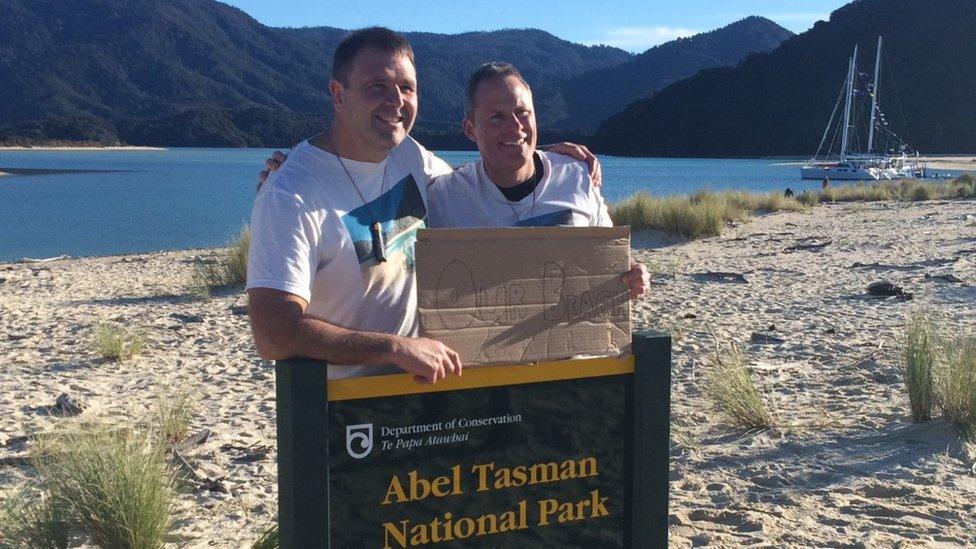
Campaigners Duane Major (L) and Adam Gardner (R) celebrate the purchase of the beach
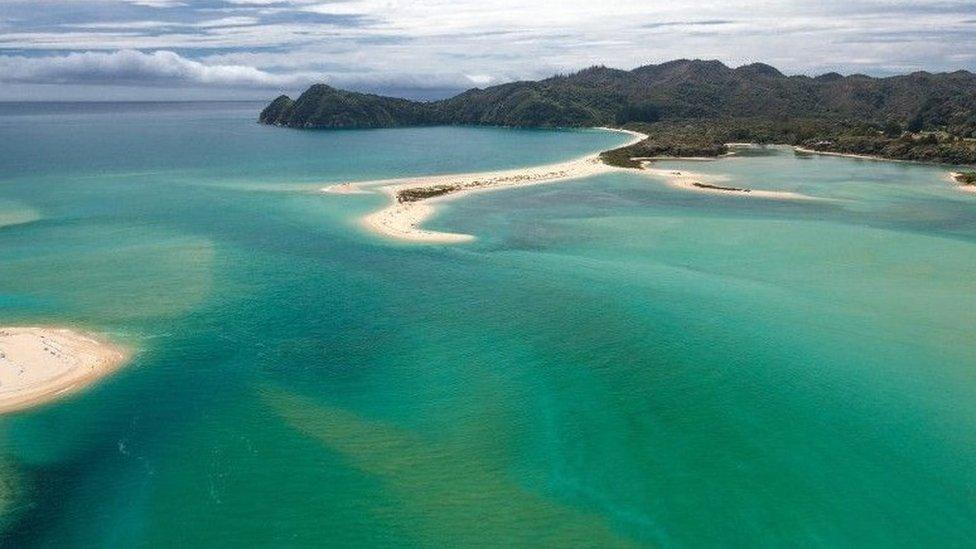
New Zealand's government contributed a small sum to buy the beach
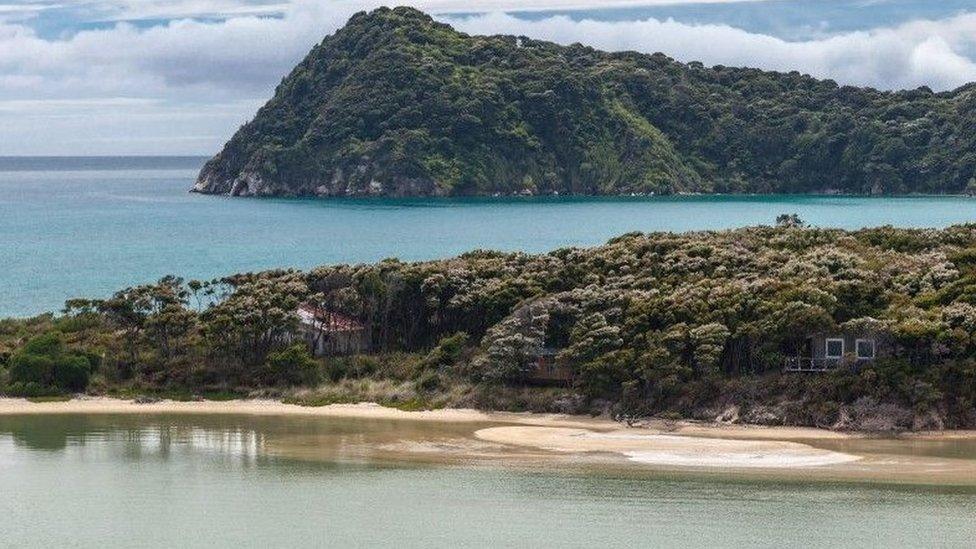
The beach is on a remote part of the South Island
New Zealand's government made a small contribution to the crowdfunding campaign, which Mr Major said was started because of "gut instinct".
But another offer to contribute by a prominent businessman and philanthropist, who said he would make up any shortfall in exchange for exclusive access to part of the beach for his family, was rejected.
The campaign also negotiated with local Maori groups, external, who had argued the beach should be handed over to them.
Mr Major said the Maori community would be involved in the future of the land.
While the land is on a remote part on the north coast of the South Island, the land also offers access by air via a nearby airstrip.
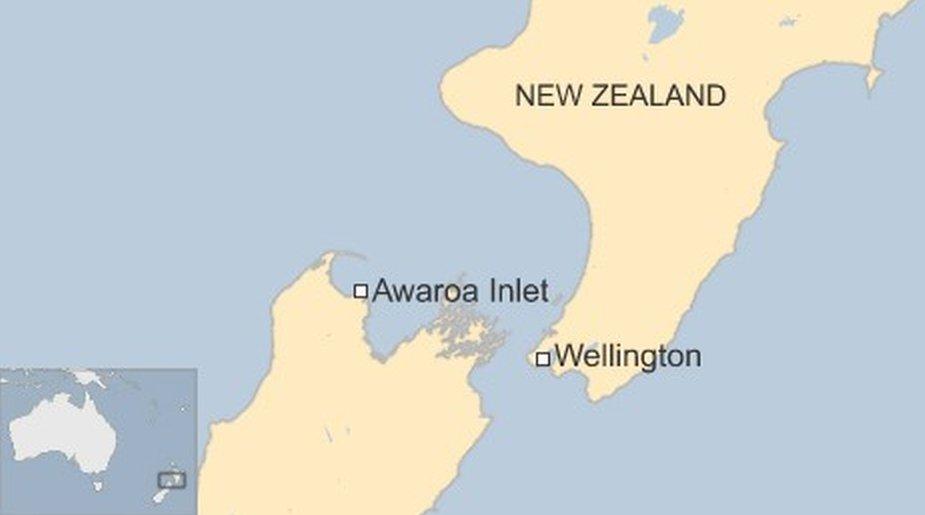
- Published22 August 2023
